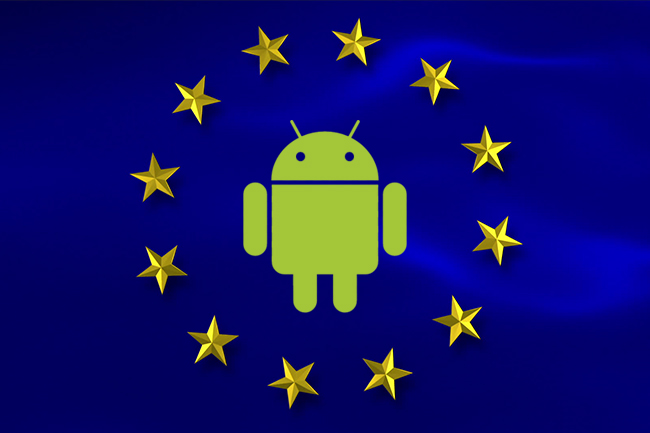The European Commission has finally decided the fate of Google following complaints of anti-competitive behaviour surrounding its Android platform. Google has been ordered to pay a record-breaking €4.34bn (£3.8bn/$5bn) fine, which the company states is unjustified given that “Android has created more choice for everyone, not less.”
European competition commissioner Margrethe Vestager issued the fine based on Google’s dominance in the Android market, coercing manufacturers into placing Google as the default pre-installed search engine and Google Chrome as the device’s browser in order to access Android’s Play Store. Vestager acknowledged that nothing was preventing users from moving to different providers, however research showed just 10 percent of users installed an alternate browser and just 1 percent downloaded a competing search app.
As of the decision, Google has 90 days to change its anti-competitive practices before it faces further legal action. The courts have also demanded that Google stops denying forked versions Android access to its Play Store due to lack of evidence that proves these iterations would be “affected by technical failures or fail to support apps,” as per Google’s own reasoning for the prevention.
“We believe that Google's behaviour denies consumers a wider choice of mobile apps and services, and stands in the way of innovation by other players,” Vestager explains. “Our concern is that by requiring phone makers and operators to pre-load a set of Google apps, rather than letting them decide for themselves which apps to load, Google might have cut off one of the main ways that new apps can reach customers.”
Fine of €4,34 bn to @Google for 3 types of illegal restrictions on the use of Android. In this way it has cemented the dominance of its search engine. Denying rivals a chance to innovate and compete on the merits. It’s illegal under EU antitrust rules. @Google now has to stop it
— Margrethe Vestager (@vestager) July 18, 2018
Unfortunately, this action could have an impact on how Google approaches Android, potentially making up for lost revenue with an increase in advertisement, upping the price of hardware or possibly reworking the operating system’s open-source approach.
Despite the record-breaking fine eclipsing Vestager’s previous €2.4bn (£2.1bn/$2.8bn) penalty against Google, it didn’t achieve the $11bn heights it could have. Regardless, Google plans to appeal the decision, stating that its “vibrant ecosystem, rapid innovation, and lower prices are classic hallmarks of robust competition.”
Although Google’s appeal is likely to begin a game of table tennis between itself and the European Commission that will last years, this concludes the lengthy investigation into the Android operating system. Google hasn’t escaped the microscope, however, as the EC is still looking into its AdSense.
KitGuru Says: It’s only natural that Google would adamantly deny the accusations and commit to an appeal. After all, one of its biggest money makers is at stake with the ruling. Do you think Google have indulged in anti-competitive practices, considering Android isn’t licensed?
 KitGuru KitGuru.net – Tech News | Hardware News | Hardware Reviews | IOS | Mobile | Gaming | Graphics Cards
KitGuru KitGuru.net – Tech News | Hardware News | Hardware Reviews | IOS | Mobile | Gaming | Graphics Cards



